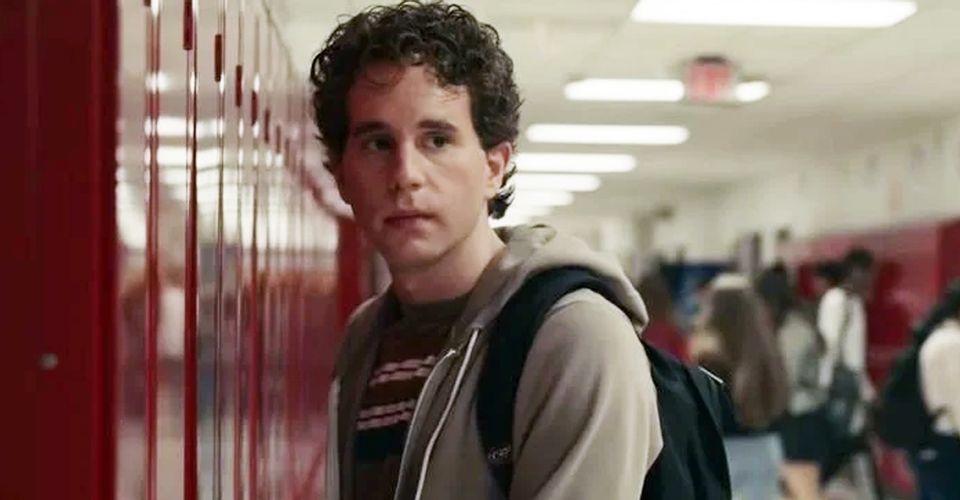Dear Evan Hansen Ending & Meaning Explained: Every Question Answered

Warning: This article contains a discussion of mental health and suicide.
The Broadway hit-turned-film Dear Evan Hansen‘s ending created some controversy and a flurry of questions. Some have argued, for example, that the film’s message is toxic. Likewise, the character whose death triggers the events of the musical, Connor Murphy, can be viewed both as a redeemable character or a villain. The film also tackles topics of mental health, in ways stronger than other on-screen portrayals. Though it’s a beloved musical, these are all valid points to make about a divisive film.
This adaption was released in theaters in September, but even before it hit theaters, Dear Evan Hansen‘s controversial casting of Ben Platt made the news. While Platt originated the titular role on Broadway in 2016, Platt was 27 during the filming of the movie and looked older. The rest of the high school characters are also played by actors in their twenties; however, Platt seemed far less believable as a teenager than his costars.
Dear Evan Hansen‘s story is also quite controversial. There’s a prevailing misconception that it’s an LGBT+ coming of age story, which is far from reality. In spite of being a popular musical, the film’s plotline is very dark. Evan suffers from social anxiety disorder and has only one “friend,” with whom he isn’t even particularly close. At first, it seems as though Evan and another outcast, Connor Murphy, may become friends; however, Connor instead becomes violently angry with Evan and later takes his own life. Connor’s family falsely assumes that a letter Evan wrote to himself as a therapeutic assignment was actually a farewell letter from their son to a friend they didn’t know he had. Instead of correcting them, Evan lies and keeps lying until he loses control of the truth. This portion of the film has left audiences talking, and not in a good way. Here’s the ending of Dear Evan Hansen explained and all the questions it raises.
Is Dear Evan Hansen’s Message Toxic?

Dear Evan Hansen has very mixed reviews because of its unusual storyline surrounding the protagonist. A more cliché film would have Evan use the death of someone he might have known to come out of his shell and work through his mental health issues. Instead, Evan starts telling a lie out of kindness, which isn’t necessarily wrong. He wants to comfort the family of his classmate by allowing them to think that their son really did have a friend in their time of grief. However, the problem is how swiftly and unnecessarily Evan’s lies grew, and how Evan even seemed to believe them as he grew addicted to the feeling of being the center of attention. At one point, Evan goes viral with a speech he gives memorializing his “friend” while trying to raise money for an apple orchard in his honor. The speech inspires so many people but it’s all lies and manipulation.
Inevitably, his lies eventually become too much and Evan confesses to Connor’s family. By this point, he has heavily exploited them. He has started dating Connor’s sister, Zoe (Kaitlyn Dever), after they grew closer based on a false premise, been offered money to go to college, and basically made himself their surrogate son. While a situation can certainly snowball, Evan allows it to escalate beyond a mere white lie into manipulating the situation for his own advantage. Worse, he really doesn’t really face any sort of punishment by Dear Evan Hansen‘s end. He confesses on social media, though that doesn’t seem to go nearly as viral as the misrepresented letter in the first place. In Dear Evan Hansen‘s entire cast of characters, no one seems to care that his inspirational speech was all lies, and he never faces any accountability for his truly reprehensible actions.
The final scene further establishes the problematic fact that not only does Evan not face any consequences from his actions, he continues to benefit from them. In the ending of Dear Evan Hansen, Zoe meets him at the orchard, claiming that she wanted Evan to actually see this place because her brother really did love it. There are so many layers to this moment. First, there is no evidence in the film that Connor had any significant feelings for the place aside from one happy childhood memory. On top of this, Zoe’s tone and the framing of the scene imply that she is praising Evan for the good work he did in her brother’s name and that she has completely glossed over the damage Evan did to her family. The film’s ending treats Evan like a hero when he is in fact a much more complex, and often toxic, person.
Is Connor Murphy Redeemable Or A Villain?

Connor Murphy’s death and mental health are the centerpieces of the film’s plot. At the beginning of Dear Evan Hansen, the story sets up Connor to be a villain. He has no friends and takes it out on Evan, who is terrorized by his own anxiety disorder. While specifics are never given, Connor’s family makes comments about his many stays in rehab and the programs that he went through. The audience sees fist-sized holes in the walls of his bedroom. Zoe claims that her family was so preoccupied with trying to help her brother that she felt left behind. Clearly, Connor Murphy was hard on those he loved, but it’s also setting up that he himself struggled with life.
This is revealed through the moments of humanity and kindness shown in Connor, even in his brief time on screen. For example, he is the only one to sign Evan’s cast because he recognizes a fellow outcast and it’s a moment that genuinely feels like perhaps the two could have been friends. Likewise, Connor’s family remembers happier days in his childhood, before the depression and anger get the better of him. Later in the film, a friend from recovery sends a video of Connor’s beautiful guitar playing. Of course, there are also terrific moments of joy and laughter with Connor and Evan on go-karts, climbing trees, and sending emails – but these are all made up.
If Connor is redeemed, it isn’t he himself that does it but rather his memory. For all his faults, Evan does manage to get his family to remember the better times they had with their son. The film also allows Connor to be a fully realized human. It never elaborates on his reasons for harming himself or bullying others beyond the death of his biological father, but it allows him to be painted in a far more sympathetic light. Connor is neither good nor bad; rather, he is a kid struggling with significant problems without the tools to necessarily deal with them in a healthy manner. He is a person haunted by his father’s death and the unfortunate circumstances that he had to live with. The film takes him from antagonist to complex character and leaves it at that.
What Dear Evan Hansen Says About Mental Health

While Dear Evan Hansen may feel toxic in how its protagonist is allowed to behave, one thing it gets right is mental health. The film doesn’t show graphic self-harm or idealize it in any way. In fact, the film’s message around mental health is an important one: many people are suffering silently. While Connor doesn’t get to tell his story to the audience, other characters get to tell theirs.
Evan suffers from a social anxiety disorder. He is shown needing therapy and medication, all while feeling very lonely. The film later unpacks what he has gone through when he admits to his mother that he didn’t break his arm in an accidental fall off a tall tree; instead, he purposely let go. Someone who sees this silent suffering is Alana Beck (Amandla Stenberg). Alana seems like the ideal student, running multiple groups and having vast numbers of friends. However, she admits to Evan that she too requires medication to handle her mental health challenges.
Finally, there’s the Murphy family themselves. Each member grieves in their own way in spite of losing the same person. The film does an excellent job of showcasing how everyone can experience mental health issues, whether clinical or situational, as well as trauma and grief, and that they can manifest differently for each person.
What Dear Evan Hansen Is Really About

Director Stephan Chbosky, when asked what Dear Evan Hansen truly means, said, “The thing is, it’s like the song says: you are not alone. It’s that simple.” This intended message comes across loud and clear. Stripping away everything else, at the start of Dear Evan Hansen, Evan is profoundly alone. He has no one to talk to about his struggles. Yet, slowly, he sees that others are suffering silently alongside him. They are all human. They all face grief, loss, loneliness, and their own struggles. His own mother admits that she has known for years how inadequate she is – and yet, she, too, is not alone. The movie is hopeful and tries to open up a conversation about how much everyone goes through silently. In spite of all its flaws, it succeeds in that way.
About The Author















